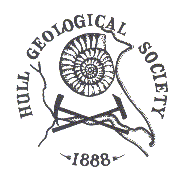
Hull Geological Society

Mike Horne FGS
[This is unfinished work that has not been edited or peer reviewed by the Society.]
Adult Education Geology Classes at the
When the
In The
The Department of
Adult Education changed its name briefly to the Centre for Continuing Education,
Development and Training in 1995 before becoming the Centre for Lifelong
Learning in 1997. The University Foundation Award was introduced as a "level
four qualification" (equivalent of the first year of a degree). To obtain the
qualification students were required to attend and pass five
In 2001 there were 19
full time members of staff in the Centre for Lifelong Learning [anon 2001], when
the Centre closed in 2012 there were nine..
The external examiner
for the UFA (Tim Crocker) for the 2010-2011 academic year commented "Overall,
this is a first rate programme, both in terms of the quality of learning
evidenced, and the variety of different learners it has been able to develop,
including many without a background tradition of participation in HE. It clearly
performs an invaluable role for the University in engaging its wider community
in progressive, higher level learning and inspiring the pursuit of academic
excellence".
During the 5 academic
years from 2005 to 2010 and average of 4529 students registered at least one
In the 2009-2010
academic year 68 percent of the students were women and 34 per cent of the
students lived in the most deprived postcode districts of the region. The Centre
offered 266 short courses in 7 locations taught in
In 2011 to 2012 the
Centre for Lifelong Learning offered UFA courses at 25 locations in East
Yorkshire and North Lincolnshire, including the main Hull campus. In north
Yorkshire the University offered 110 courses at the Scarborough campus,
The Geology Department
opened at University College Hull in 1949 with John Neale and Lewis Penny as the
first lecturers. In 1960 John Neale (1926-2006) started to offer a geology night
class. The following year Mark Piasecki (1931 - 1999) took over the classes and
continued to run evening classes and weekend filed excursions until the
Department closed in 1988. Brian Waugh also ran some courses until he left to
work in
Local school teachers
Sheila Rogers and Lynden Emery taught classes in
Terry Rockett was
invited to teach a course at a school in Goole for the WEA and University in
1994. When they asked him to run a second course he recommended Mike Horne. Mike
co-tutored two courses for them with Lynden Emery in 1995. Mike had been
involved in staff training at the University in a scheme arranged by 1993 the
Head of Department in Adult Education. Mike asked permission to use the
geological collection that was now part of the Department of Geography for
“night classes”. Members of the Dept were pleased for the collection to be used
and Mike developed nine courses that were run on a three year cycle. He also ran
an extended version of the Geoforensics course in 2008 that he taught in the
Chemistry Department to full-time undergraduates. Some of the courses were so
popular that a monthly microscopy evening was started for alumni of the classes
and members of the Hull Geological Society. In 2008 Mike started a summer
fieldwork course with fellow tutor Roger Sutcliffe, based in Hull and Whitby for
the indoor meetings with the students meeting up for fieldwork at weekends.
Roger retired in 2011 and Mike ran the course by himself in 2012; this was the
last geology course run by the Department.
The final CLL
prospectus featured a picture of stepping stones on the cover with the phrase
“one small step is all it takes to transform your life” .
sources –
anon [2001] –
Information handbook for
anon [2007] – The UFA
and you.
anon 2009. The
University of Hull. Short Courses 2009-10.
anon 2011. Centre for
Lifelong Learning. Looking to the future - "going beyond". (unpublished report)
anon 2011. Centre
for Lifelong Learning. Short courses 2011/12.
anon 2011. Short
Courses and Foundation degrees 2011/12. Centre for Emplyability and Professional
Skills.
anon 2011.
Strategic Plan 2011-2015.
T
Copyright - Hull Geological Society 2022
Registered Educational Charity No. 229147